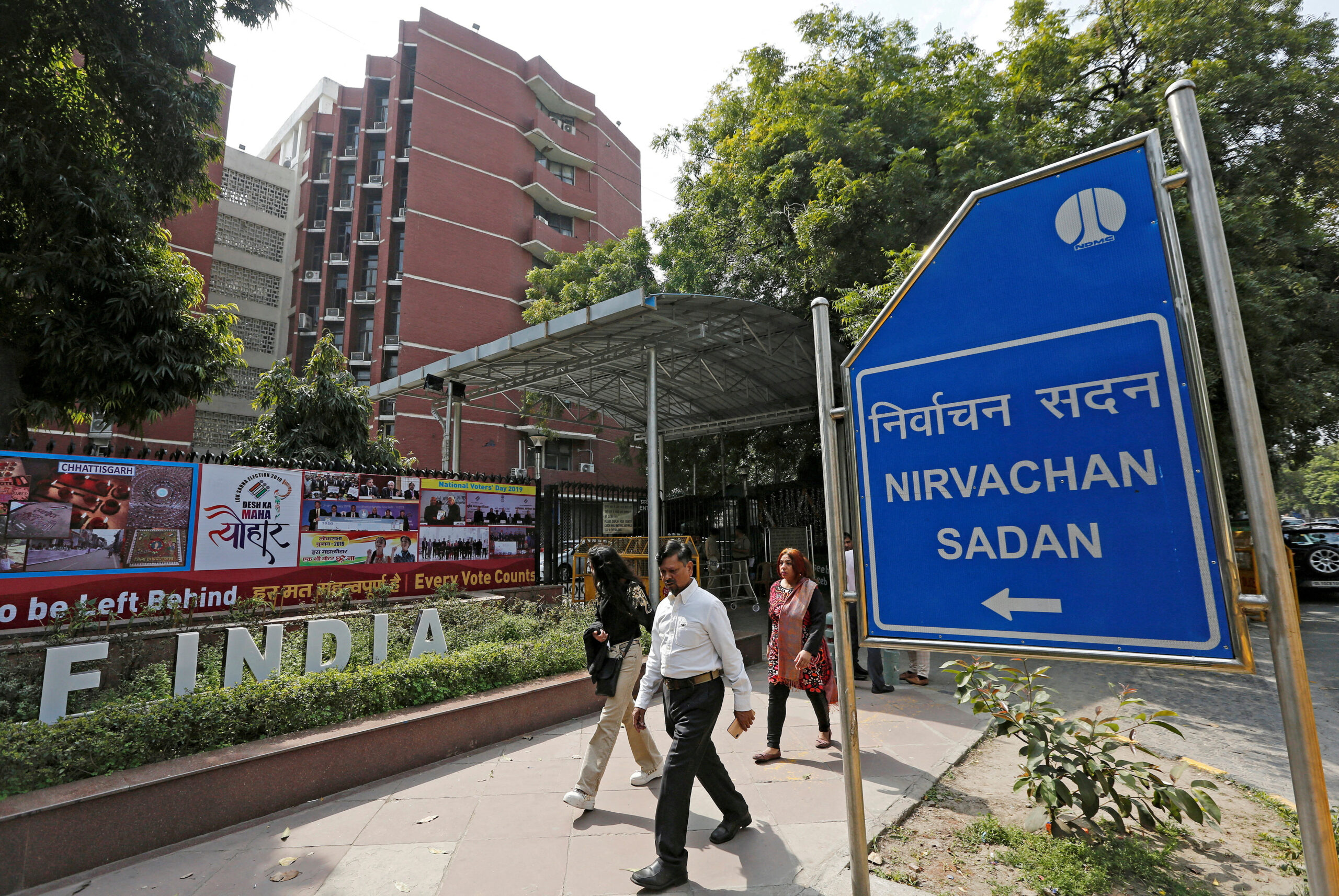- Wednesday, February 05, 2025
The amendment ensures that only papers mentioned in the rules are available for public inspection, while electronic documents like CCTV footage have been excluded

By: shajil kumar
THE GOVERNMENT has tweaked an election rule to prevent public inspection of certain electronic documents such as CCTV camera and webcasting footage as well as video recordings of candidates to prevent their misuse.
Based on the recommendation of the Election Commission (EC), the Union law ministry on Friday amended Rule 93(2)(a) of the Conduct of Election Rules, 1961, to restrict the type of “papers” or documents open to public inspection.
According to Rule 93, all “papers” related to elections shall be open to public inspection.
The amendment inserts “as specified in these rules” after “papers”.
Law ministry and EC officials separately explained that a court case was the “trigger” behind the amendment.
While documents such as nomination forms, appointment of election agents, results and election account statements are mentioned in the Conduct of Election Rules, electronic documents such as CCTV camera footage, webcasting footage and video recording of candidates during the Model Code of Conduct period are not covered.
“CCTV coverage, webcasting of polling stations are not carried out under Conduct of Election Rules but are the result of steps taken by the EC to ensure a level playing field,” a former EC official explained.
An EC functionary said, “There have been instances where such electronic records have been sought, citing the rules. The amendment ensures that only papers mentioned in the rules are available for public inspection and any other document which has no reference in the rules is not allowed for public inspection.”
EC functionaries said the misuse of CCTV camera footage from inside polling booths could compromise voter secrecy.
They also said the footage could be used to generate fake narrative using AI.
“All such material is available to candidates, including footage. After the amendment, too, it will be available to them. But other people can always approach the courts to get such electronic records,” said another functionary.
Candidates already have access to all documents and papers. Nothing has been amended in the rules in this regard, the functionary added.
Punjab and Haryana High Court, in the recent Mahmoud Pracha vs EC case, had directed sharing all documents related to the Haryana Assembly elections, including treating CCTV camera footage as permissible under Rule 93(2), with Pracha.
The rule mentioned election papers. The election papers and documents do not specifically refer to electronic records, the EC functionaries said.
In order to remove this ambiguity, the rule has been amended to safeguard the misuse of CCTV camera footage of polling stations, an EC official explained.
A law ministry official said all election papers and documents were otherwise available for public inspection.
Congress flays move
The Congress party has hit out at the Election Commission for tweaking an election rule to prevent public inspection of certain electronic documents, asking why the poll panel was afraid of transparency.
Congress general secretary in-charge communications Jairam Ramesh said the party would legally challenge the amendment.
“If there was ever a vindication of our assertions regarding the rapidly eroding integrity of the electoral process managed by the Election Commission of India (ECI) in recent times, this is it,” Ramesh said in a post on X.
Sharing a December 20 notification, the Congress leader said, “This move of the ECI will be challenged legally right away.”
Ramesh said sunlight was the best disinfectant and information would restore faith in the process – a reasoning Punjab and Haryana High Court agreed with when it directed the ECI to share all information it was legally required to with the public.
“Yet, the ECI, instead of complying with the judgment, rushes to amend the law to curtail the list of what can be shared,” he said.
“Why is the ECI so afraid of transparency?” the Congress general secretary asked.
Transparency and openness are key in exposing and eliminating corruption and unethical practices and information restores confidence in the process, Ramesh noted. (PTI)